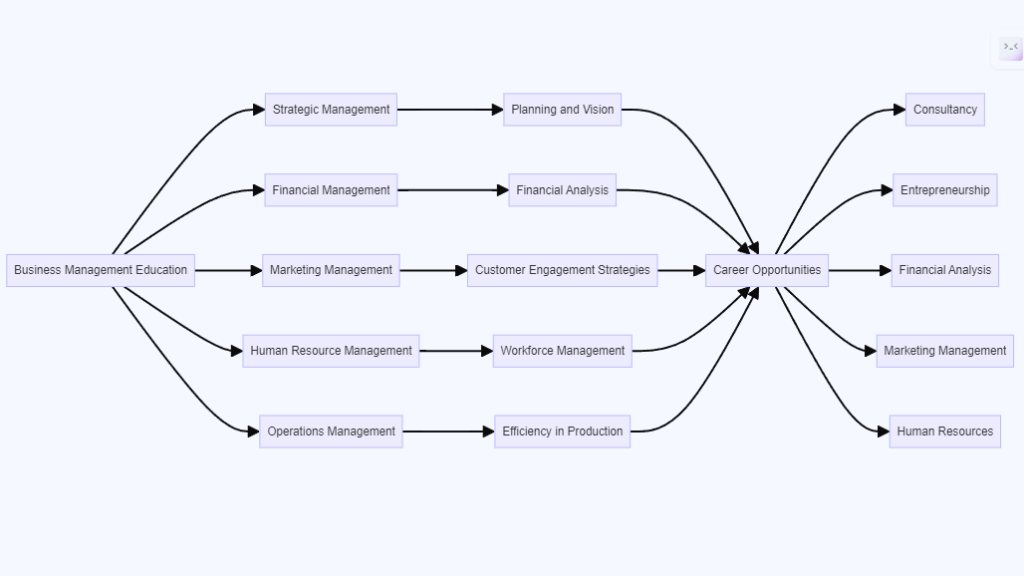Mastering Business Management: Essential Curriculum Insights
Exploring Key Subjects
In today’s ever-evolving global economy, the demand for adept business leaders and managers is soaring. For aspiring professionals, understanding the intricacies of business management education is paramount to thriving in this dynamic field. This guide delves deep into the critical components of business management studies, shedding light on curriculum essentials, career prospects, and the importance of real-world application.
Curriculum Essentials in Business Management
Business education is meticulously crafted to furnish students with a solid groundwork in various facets of business operations. From strategic planning to financial analysis, the curriculum is strategically structured to cover core subjects:
Strategic Management
Strategic management equips students with the expertise to devise, execute, and evaluate cross-functional decisions crucial for organizational success. Emphasizing strategic planning and visionary leadership, this subject is integral to steering companies towards their goals.
Financial Management
Financial management is a cornerstone of business management, encompassing the planning, organization, direction, and control of an organization’s financial activities. It includes interpreting financial statements, devising investment strategies, and managing risks effectively.
Marketing Management
Marketing management explores the strategies and tactics businesses employ to identify customer needs, develop products, and communicate value effectively. Topics covered include market research, branding, and digital marketing strategies.
Human Resource Management
Human resource management focuses on managing people within organizations. It encompasses recruitment, training, performance appraisal, and diversity management, crucial for enhancing workforce effectiveness.
Operations Management
Operations management involves administering business practices to maximize efficiency within an organization. It encompasses planning, organizing, and supervising production and manufacturing processes.
Career Opportunities with a Degree in Management
A business management degree opens doors to diverse career paths, including consultancy, entrepreneurship, financial analysis, marketing management, and human resources management.
The Significance of Real-World Application
While theoretical knowledge forms the foundation, practical application is indispensable. Internships, case studies, and industry projects are vital for translating academic learning into actionable skills, preparing students for the complexities of the business world.
Visualizing the Curriculum
Figure 1: Flow Diagram
This diagram illustrates the journey from acquiring foundational knowledge in business management to its practical application in various career paths. It underscores the interconnection of different subjects, highlighting the comprehensive nature of the curriculum.
Conclusion
The realm of business education presents both challenges and rewards, offering abundant career opportunities to those equipped with the requisite knowledge and skills. By pursuing a holistic education in business management, aspiring professionals can position themselves as invaluable assets in any organizational setting. Prioritizing real-world application alongside theoretical understanding is indispensable for navigating today’s intricate business landscape successfully.
To know more – visit our Website


